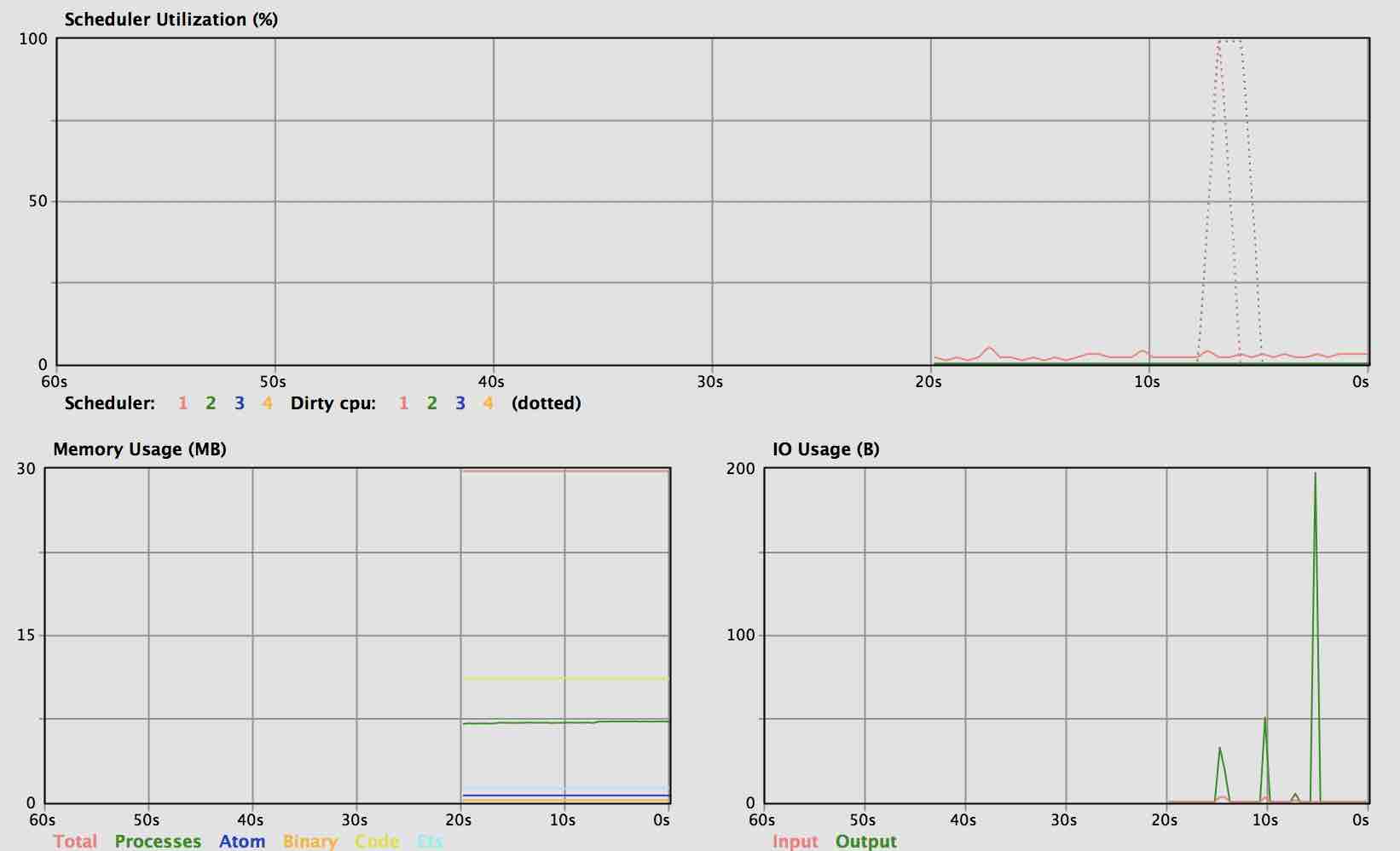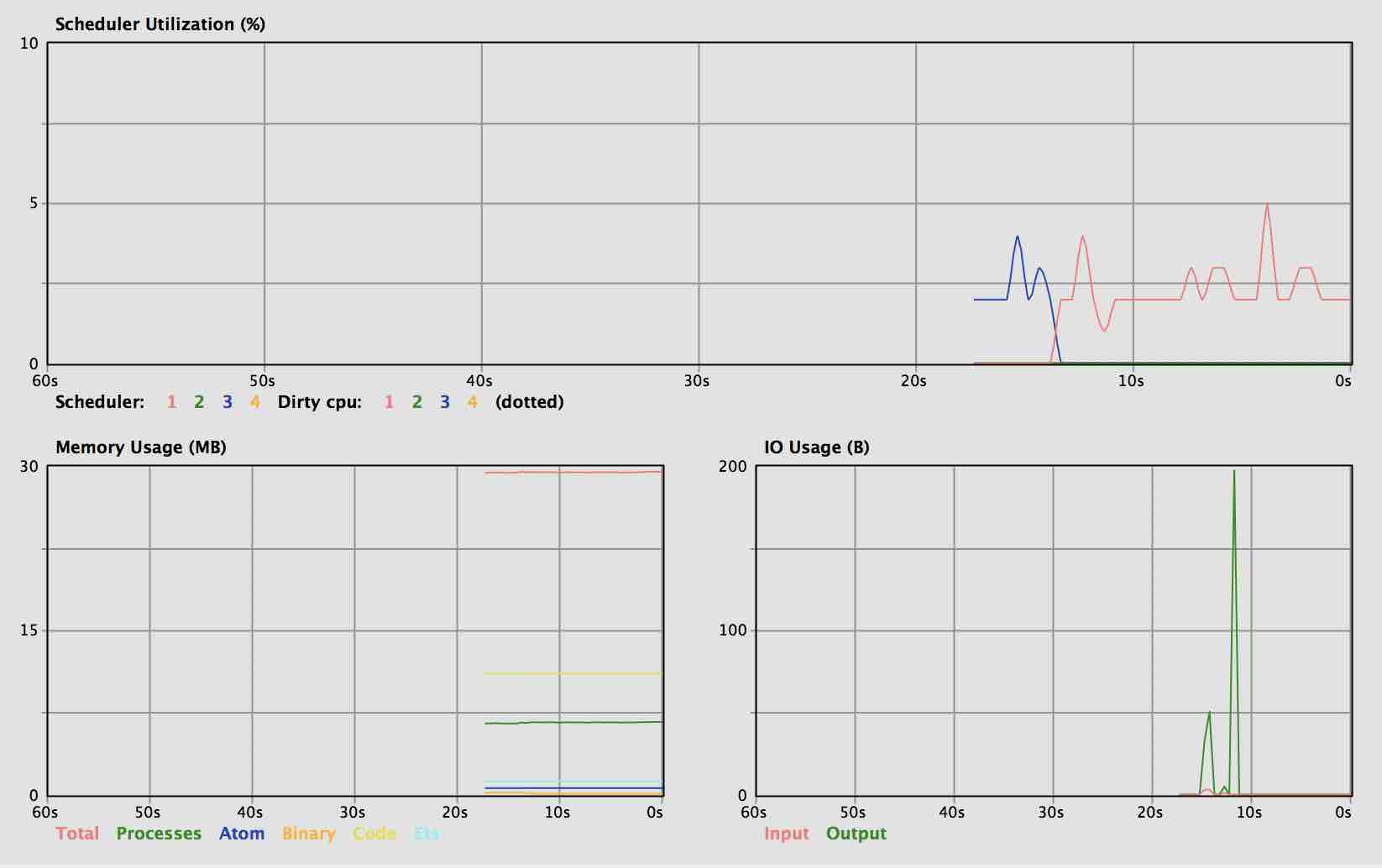Using Dirty Schedulers with Rustler
15 Aug 2018In an earlier post, I showed how to get started using Rust NIFs with Rustler. We’ll continue using the same Nifty repo. In this post, we’ll be using the dirty_schedulers branch. Recall that there are two types of dirty schedulers - CPU-bound and IO-bound. In Erlang, these are defined as ERL_NIF_DIRTY_JOB_CPU_BOUND and ERL_NIF_DIRTY_JOB_IO_BOUND.
In Rustler, they’re similarly delimited with an enum here:
pub enum SchedulerFlags {
Normal = 0,
DirtyCpu = 1,
DirtyIo = 2,
}
As you can see, the names are different, but the idea is the same. A “clean” NIF is a Normal NIF, and the dirty scheduler types are DirtyCpu and DirtyIo. To use the dirty schedulers, bring the SchedulerFlags module with use rustler::schedule::SchedulerFlags. You can see this in lib.rs in the Nifty repo. In dirty_test.rs, there are two somewhat contrived tests that illustrate both types of dirty schedulers.
pub fn dirty_cpu<'a>(env: Env<'a>, _: &[Term<'a>]) -> NifResult<Term<'a>> {
let duration = time::Duration::from_millis(100);
::std::thread::sleep(duration);
Ok(atoms::ok().encode(env))
}
pub fn dirty_io<'a>(env: Env<'a>, _: &[Term<'a>]) -> NifResult<Term<'a>> {
let duration = time::Duration::from_millis(100);
::std::thread::sleep(duration);
Ok(atoms::ok().encode(env))
}
Both of these tests do the same thing - they sleep for 100 milliseconds and return an :ok atom. 100 milliseconds is 100 times the 1-millisecond Erlang scheduler preemptive threshold.
I’ve yet to come up with a good Dirty IO example, but the Dirty CPU example listed above works well enough to get the dirty schedulers to do some work.
There’s one thing more to do. Add the function - which we’re calling timed_cpu to the rustler_export_nifs! macro like so:
rustler_export_nifs! {
"Elixir.Nifty",
[("add", 2, add),
("sub", 2, sub),
("timed_cpu", 0, timed_cpu, SchedulerFlags::DirtyCpu)],
None
}
The striking distinction is that you need to specify SchedulerFlags::DirtyCpu. For completeness, here’s the function:
fn timed_cpu<'a>(env: Env<'a>, _: &[Term<'a>]) -> NifResult<Term<'a>> {
let duration = time::Duration::from_millis(1_000);
::std::thread::sleep(duration);
Ok(atoms::ok().encode(env))
}
It does the exact same thing as the Rustler test except that it sleeps for an entire second - an inordinate amount of time for a scheduler. Now, in nifty.ex, add the following functions:
def timed_cpu(), do: :erlang.nif_error(:nif_not_loaded)
def spawn_dirty_cpu_and_receive(num_to_spawn \\ 1) do
range = 1..num_to_spawn
process = self()
Enum.map(range, fn (_elem) ->
spawn_link fn ->
(send process, {self(), timed_cpu()})
end
end)
|> Enum.map(fn (pid) ->
receive do { ^pid, result } -> result end
end)
end
timed_cpu/0 functions in the same way as add/2 and sub/2. These functions are passed to the Rust crate and if for whatever reason they’re not found a :nif_not_loaded Erlang error is returned. The spawn_dirty_io_and_receive/1 function spawns some number of processes, calls timed_cpu/0 and waits to receive the message as denoted by the pinned pid.
The sole purpose of this function is to get the dotted lines representing the schedulers on the observer to move. Start the library with iex -S mix and from the prompt run iex(2)> Nifty.spawn_dirty_io(5). This spawns five processes which should take a total of five seconds to return with a list of :ok atoms.
iex(3)> Nifty.spawn_dirty_io_and_receive(5)
[:ok, :ok, :ok, :ok, :ok]
Load up the observer and let’s see if we can get the dirty schedulers to activate.

Hey, look at that. It worked. And it used two of the four schedulers.
What’s interesting is that if you go back to lib.rs and change SchedulerFlags::DirtyCpu to SchedulerFlags::DirtyIo and run spawn_dirty_cpu_and_receive/1 again with the observer running, you’ll see that none of the dirty schedulers are activated.

That makes sense and I’ll figure out a way to simulate dirty IO in a future post.